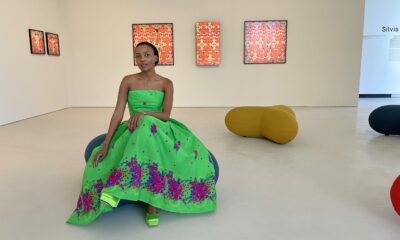Features
This Edition of Work & Life in Italy Delves into the Afro-Brazilian Spirituality of Simao Amista
Editor’s note: As the years go by, migrating to other countries has become increasingly popular, particularly for Nigerians (and Africans generally). Japa, we call it. For the next 10 weeks, Imo Ekanem, in partnership with BellaNaija Features, will explore what it means to live in Italy as an African professional.
Work & Life in Italy is a weekly series where we talk about how Africans live, work, deal with discrimination, and so on. Did you miss our third episode with Kevin Beaulier? Read it here.
This week’s conversation is with Simao Amista, an Italian-Afro-Brazilian who was born in Brazil and raised in Modena, Italy. Simao is the President of the Àlàáfíà Association, which has as its goal the dissemination of traditional African and Afrodiasporic philosophies. He is initiated into Candomblé Ketu, an Afro-Brazilian spiritual tradition of Yorùbá matrix. He’s an expert in philosophies and traditions of central-west Africa and diasporic America, a lecturer in the field of interculture and an expert in the traditional art of West Africa.
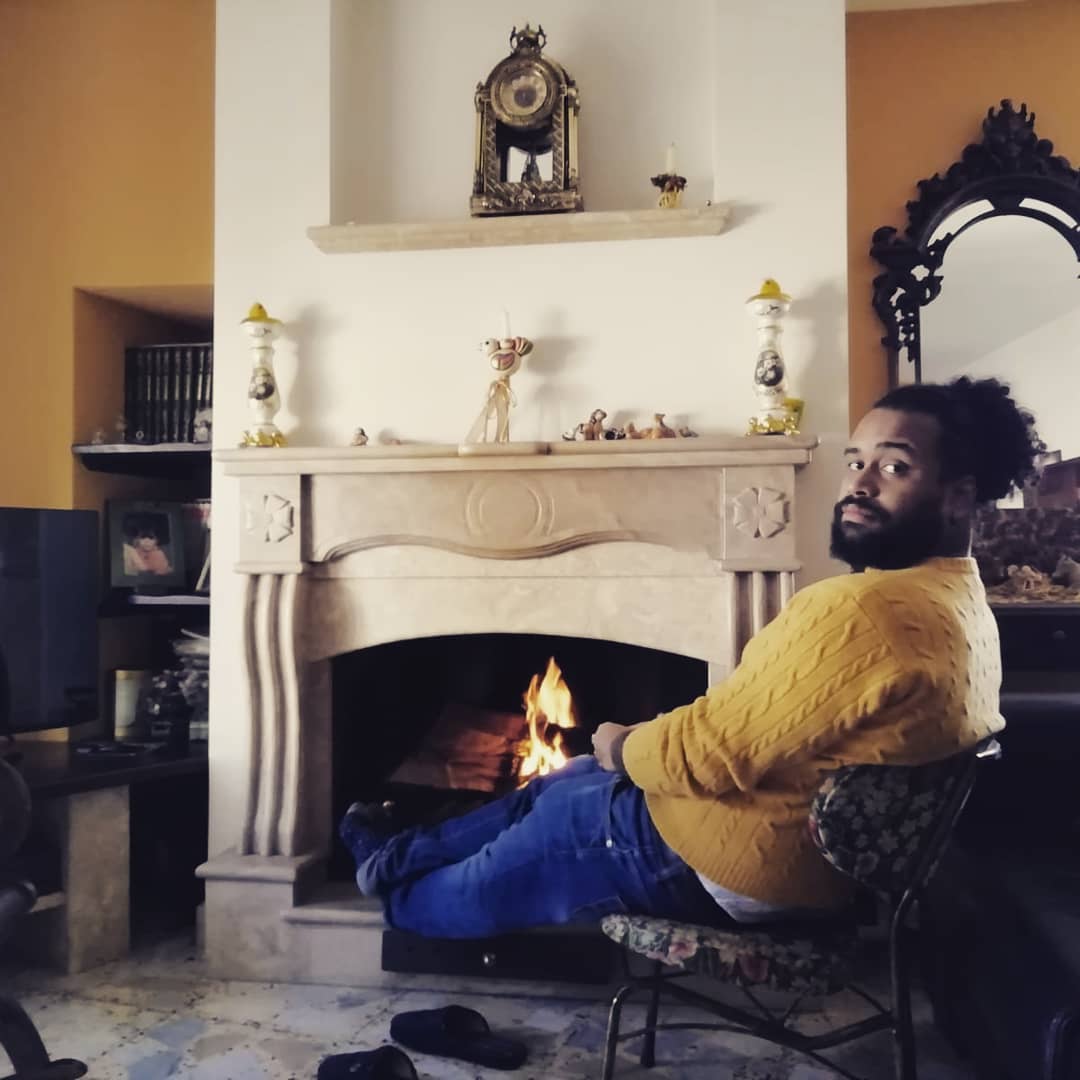
Hi, Simao Amista, thanks for joining us today
Hi, thanks for having me.
Give us a glimpse into your background
I am an adopted person. Brazilian Afro-descendant, therefore a descendant of the great diaspora and forced deportation, also called transatlantic slavery. My cultural background and cultural affiliation are therefore multiple. I was raised by a couple of Italian parents and, also thanks to them, over time I was able to reconnect with my Brazilian, Afro-Brazilian culture of origin. I approached my African roots and, over time, the traditional spirituality called Candomblé Ketu, an Afro-Brazilian tradition of Yorùbá matrix.
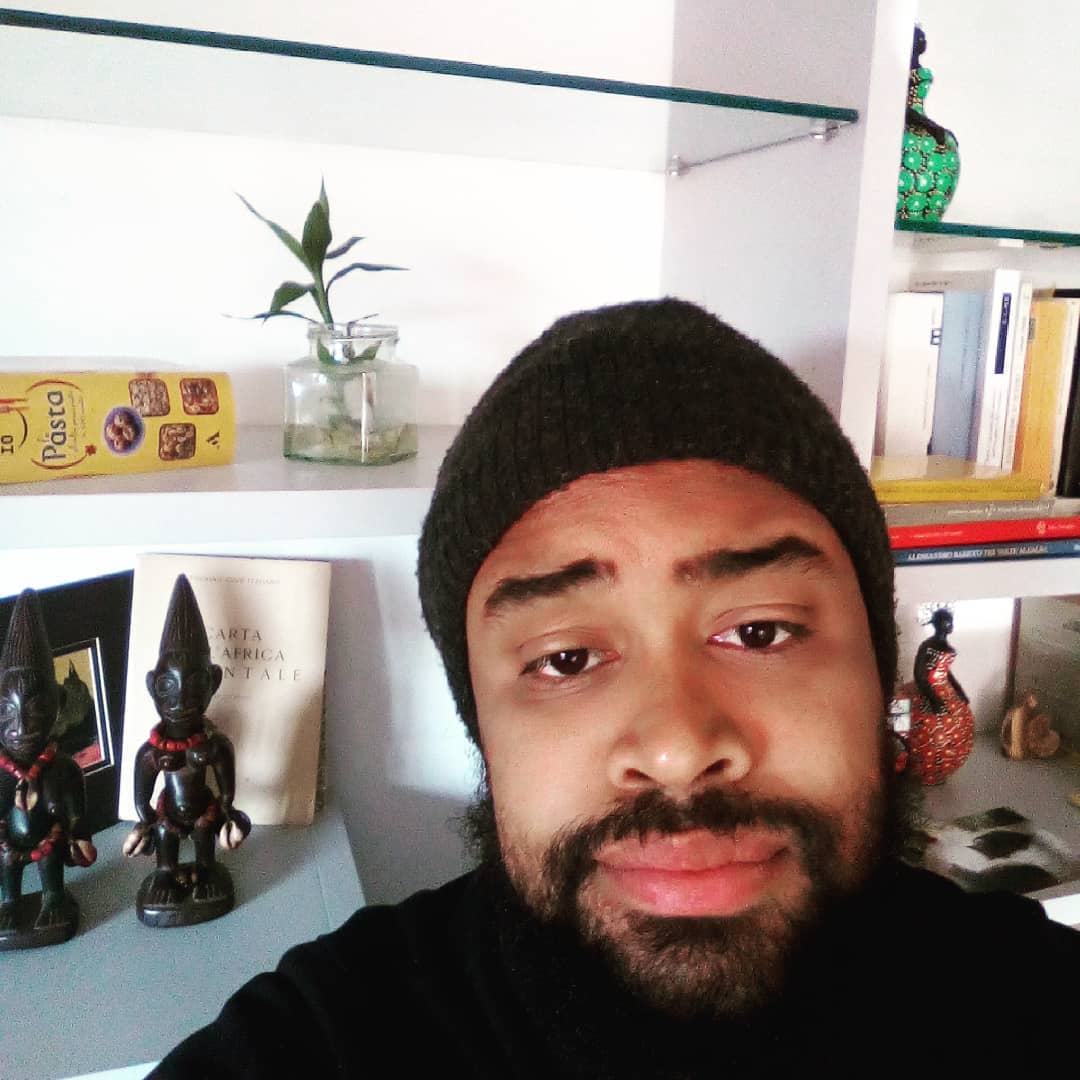
Quite intriguing. So how has living in Italy been as someone with multiple cultural affiliations?
It’s not been easy. Society does not mirror you and, the more you choose to live in contrast with the norm – for example, by living and following Afro-centered lifestyles or life philosophies – the more hostile society turns out to be, only for issues of skin colour difference. During my days in school, I suffered racism from my peers and also from teachers. In football, it happened to me often. Even from the police in my everyday life.
How did you deal with this discrimination?
Depending on my age and historical moment in my life, I reacted in different ways. I began to react more effectively when I understood, over time, what it means to be black and/or African. When I say African, I don’t mean specifically born on the continent, but belonging to an African or Afro-descendant culture. For me, Africa is not colour but culture. Just as a Westerner feels like one – whether he was born in France, in the USA or in Australia – a person who lives his life according to Afro paradigms must feel African wherever he lives or was born. So being aware of yourself, your history and your culture is essential to better face a world where racism is structural.
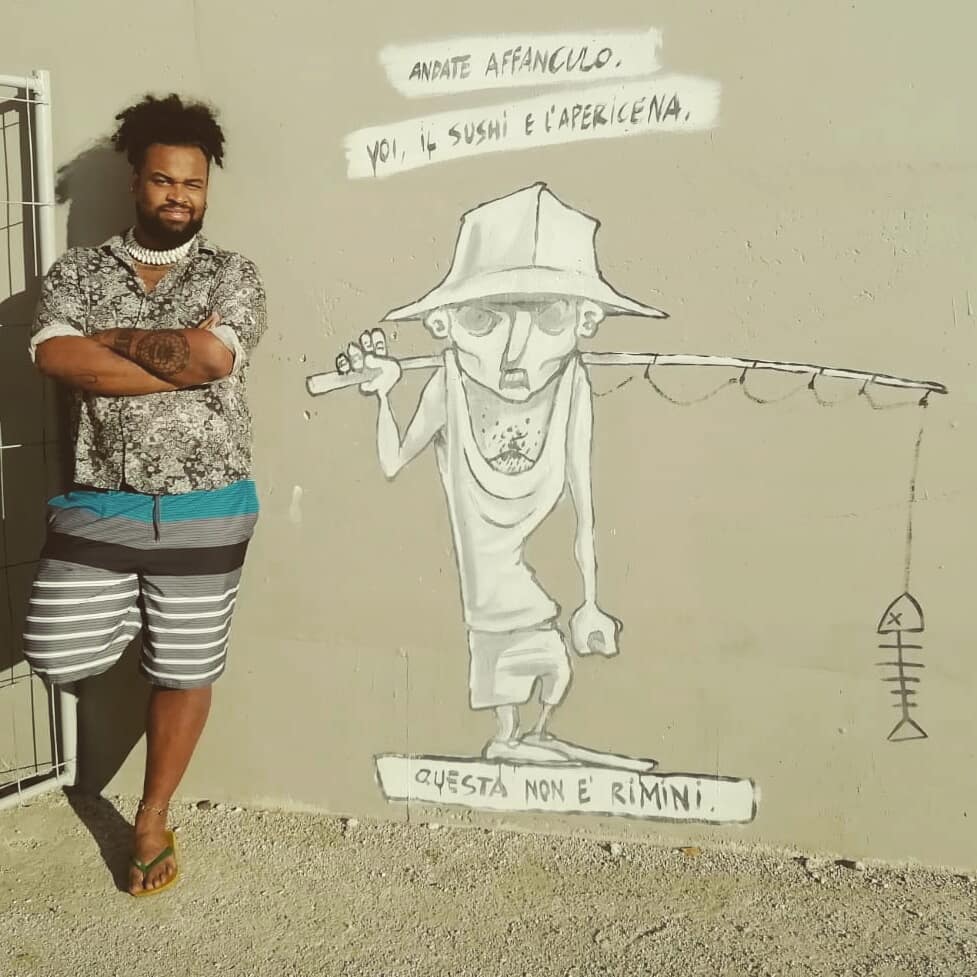
Indeed! Tell us about your professional journey in Italy
My professionalism, study and work path are closely linked to Africa and Afro-descension. I am an expert in traditional African art and in the philosophies and spiritualities of West Africa and the diasporic Africa of the Americas. From an art point of view, I collaborate with museums, private individuals and organisations present in the Italian territory such as Black History Month Florence and other associations. I am also a teacher and trainer in the field of intercultural and African and Afro-descendant history and philosophy. I carry out this activity at the Donald Study Center. J. Ottenberg of Modena as a freelancer.
That’s a lot!
It is.
What are the challenges, lessons and high moments from your career journey?
The challenge, especially in the cultural and training/teaching environments, as far as Italy is concerned, lies in the fact of bringing new topics, which are not always immediately understood or deemed necessary/imported. The lesson and the most important moments coincide; having learned to persevere and make people understand how necessary certain issues and certain topics are in Italy has helped me break the barriers of distrust and also access unexpected places. Places like the Italian Cultural Institute in Paris where I was called to hold a conference on African cultures in Italy.

What would you consider to be the special ingredients in your success story?
I’d summarise everything into consistency, alignment with my history and ancestors, and the desire to know and let others know.
My story began to be a winning story when I realigned myself with my essence when I came to terms with my history, my culture and my ancestors. When I stopped wanting to live a life that was not mine – a life imposed by a Westernised and Eurocentric world which, when it thought of its own rules and values and aesthetic and moral canons, did not think of my history, my culture, my philosophy, spirituality and aesthetics. My secret ingredients are from an ancient recipe that comes from my ancestors.
What are the little actions Africans in Italy can adopt to help them thrive?
Being coherent with oneself, not having goals set by others, knowing one’s own history in order not to be overwhelmed by what others think of Africa and Africans, being dynamic and having a spirit of adaptation.
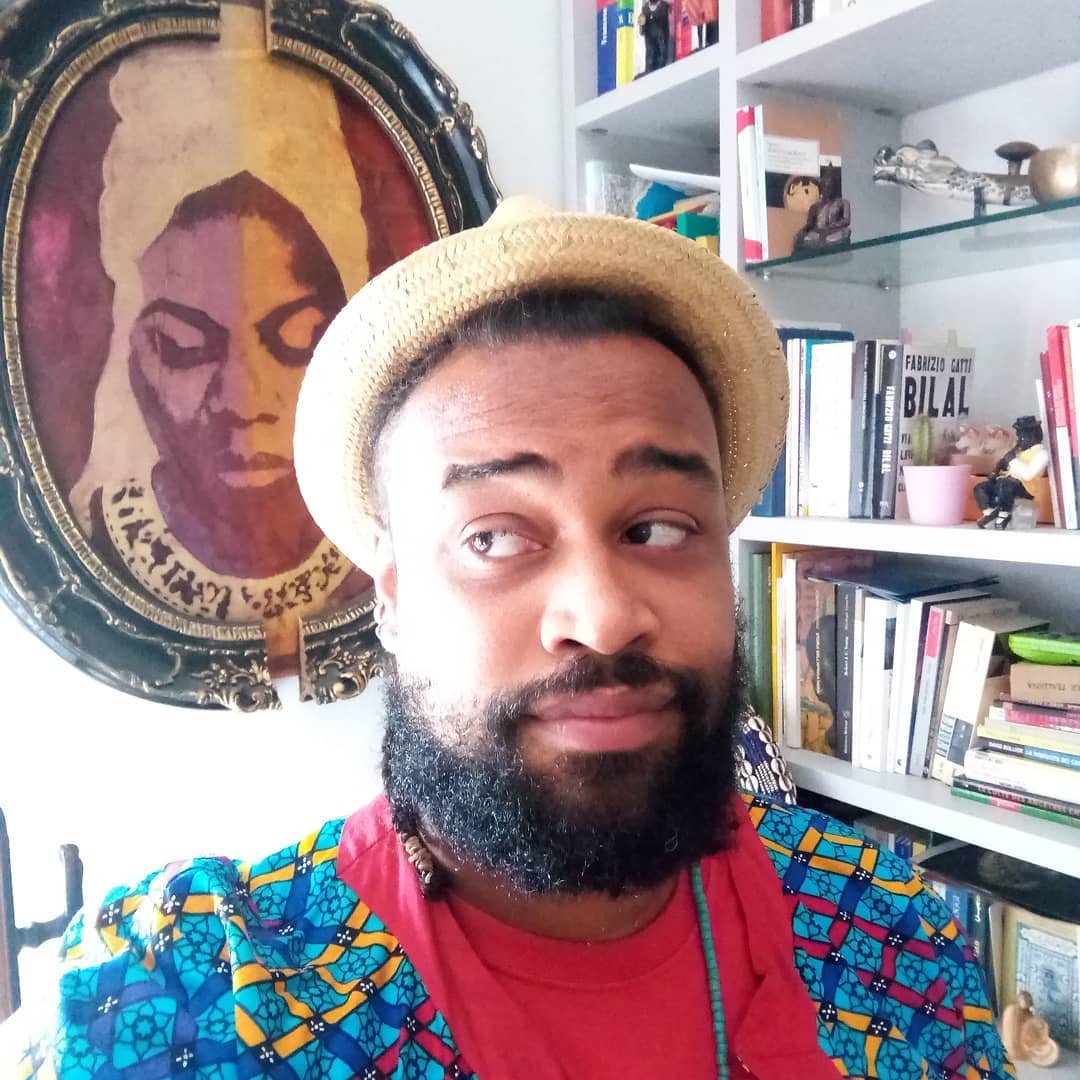
What are the things Africans looking to relocate should keep in mind?
That Europe and the West in general are not the promised land. That Africa and Africans are much more than what they teach in schools. We also need to be prepared and have in mind the legal and social rules of the countries we want to move to.
These are solid tips! Thank you for being a part of this, Simao.
Thank you for having me.
***
Many thanks to Simao Amista for having this conversation with us and to Imo Ekanem for making this possible. Catch up with the next episode next Sunday.
Do you want to be featured on BellaNaija or share your essays with us? Shoot us an email: [email protected]




